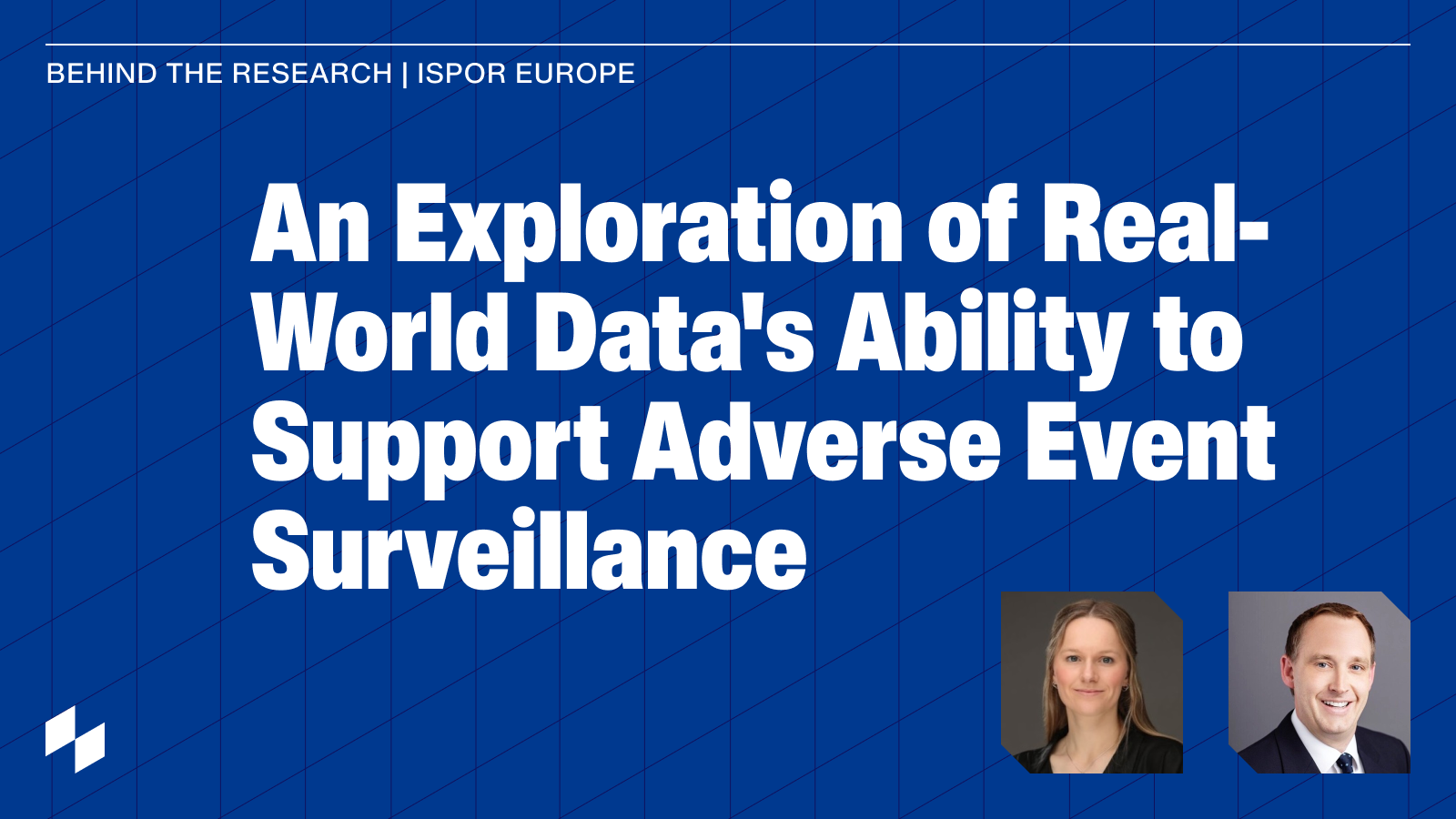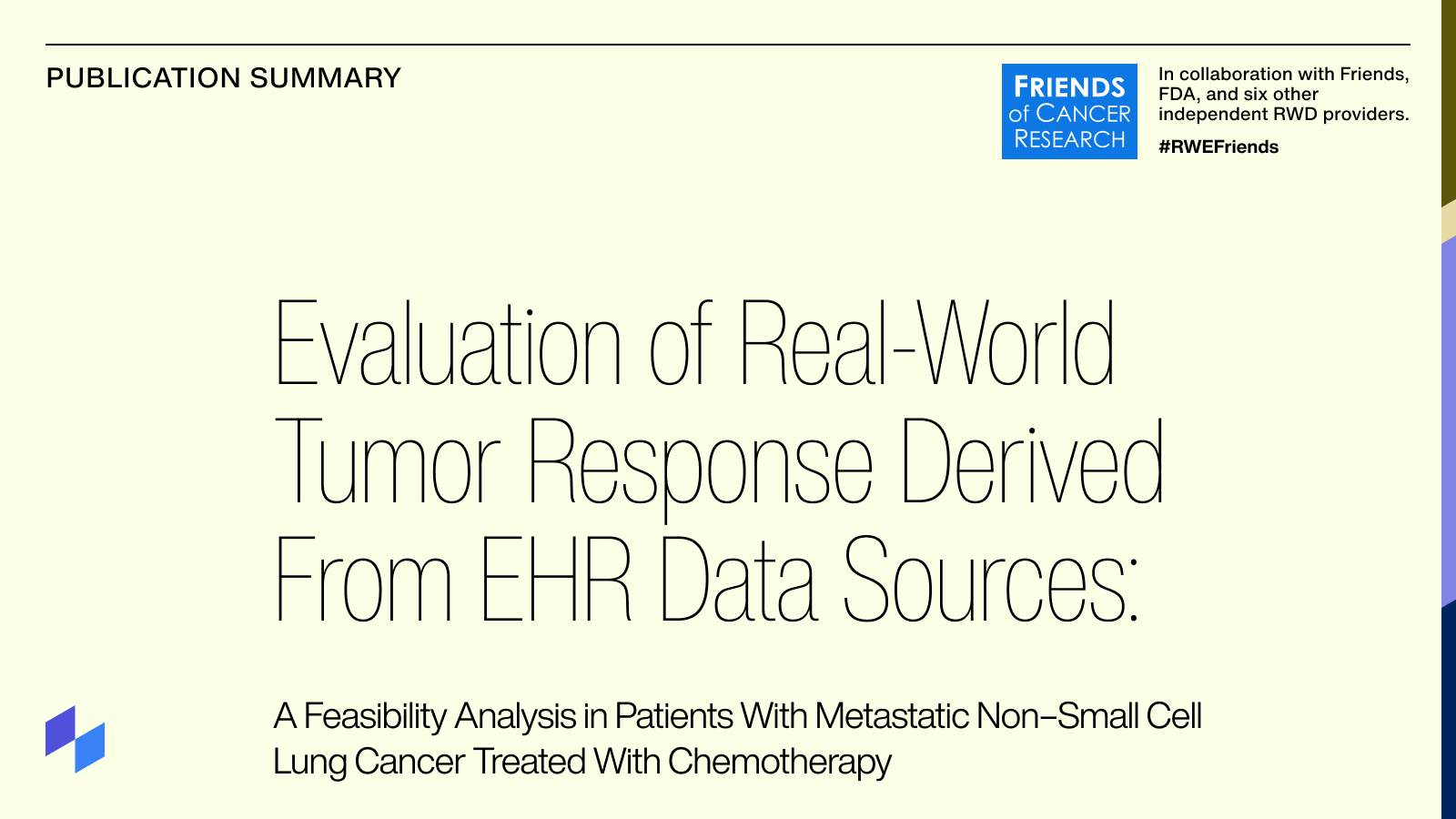The 21st Century Cures Act, enacted by the US Congress in December 2016, was a call to action across the industry to modernize clinical trial designs and prioritize the use of RWE across research. Although RWD existed well before the legislation, the Cures Act elevated its importance, solidifying RWD as a credible scientific approach. It also empowered the FDA to expand on opportunities for RWD to support regulatory submissions and scenarios where data may provide support for regulatory decisions.
In the years since the Cures Act, the industry has witnessed both successes and challenges in the use of RWD for regulatory submissions. These experiences have provided valuable insight on how regulators view the use of RWD across various contexts. And, as we’ve seen the use of RWD expand, so has regulatory and policy guidance around this use. In the past several years, quality has been discussed in frameworks and guidance by the FDA, EMA, NICE, Duke-Margolis Health Policy Center, and the Patient-Centered Outcomes Research Institute. However, quality is not just a single concept—and until recently, formal guidance on the necessary elements and features to demonstrate that RWD is fit-for-purpose to answer a specific research question remained undefined.
Introducing the QCARD Initiative
Addressing this gap, the Reagan-Udall Foundation for the FDA convened the Oncology Quality, Characterization, and Assessment of Real-World Data (QCARD) Initiative. This effort aimed to develop a standardized framework for evaluating whether RWD proposed in preliminary study concepts is suitable for its intended purpose.
The committee—made up of a multidisciplinary group of experts—defined a set of minimum study design and data elements needed by scientific reviewers to evaluate whether the RWD proposed in a preliminary study concept is fit-for-regulatory-purpose. The committee recently published a comprehensive review in the journal Pharmacoepidemiology & Drug Safety, including the Oncology QCARD initial protocol characterization (IPC), a template to facilitate the description of high-level characteristics of RWD and study design parameters for regulatory submissions of RWE.
The QCARD-IPC provides a structured and transparent approach to guide early evaluations and foster improved communication between study sponsors and scientific and regulatory reviewers. By focusing on critical elements such as data collection timing, study population, medical product exposure, comparators, covariates, endpoints, statistical methods, and data quality assurance plans, the QCARD-IPC equips stakeholders with a robust tool to ensure RWD is fit-for-use.
What’s next for RWD in regulatory use-cases
As the leader in oncology RWD, Flatiron has built the extraction and curation infrastructure necessary to deliver high-quality data for real-world oncology research and regulatory applications. High quality and fit-for-purpose real-world data has vast potential including:
- to demonstrate unmet needs
- inform trial design and endpoints
- contextualize a single arm trials
- fulfill post-marketing commitments and requirements
Over the last decade, Flatiron real-world data has supported numerous regulatory submissions worldwide. Flatiron also maintains a valuable relationship with the FDA, including a long standing collaboration to jointly develop and implement specific research projects to advance the use of real-world data and explore the potential strengths and limitations of using RWE for regulatory purposes.
The recent QCARD guidance signals the increasing expectation for sponsors to demonstrate a data source is fit-for-regulatory-purpose very early in the regulatory engagement. With deep knowledge of the specific data at-hand, and extensive experience and expertise on regulatory expectations, data providers can help navigate and de-risk the complexities of regulatory submissions.
At Flatiron, we’re big believers in data empathy—a deep understanding of the underlying data and its journey—enhancing our team’s understanding of the fitness and limitations of specific RWD to answer a research question. This data empathy uniquely equips the regulatory team at Flatiron to work closely with our biopharma and life science customers to strategically position our data as fit-for-regulatory-purpose.
Beyond knowledge of our own data, Flatiron leverages industry intelligence gathered from regulatory decisions involving RWE in oncology—whether using Flatiron data or not—to continually refine our strategies. This industry intelligence, combined with direct commentary received from regulators on Flatiron’s data, enables Flatiron to secure regulatory buy-in early, and ultimately, regulatory approval.
Services for de-risking regulatory engagements
Flatiron offers a full suite of regulatory support services designed to facilitate and de-risk regulatory engagements when leveraging RWD. Our own fit-for-purpose assessments (FFPAs), in addition to the QCARD-IPC domains, include quantitative feasibility outputs like patient counts and attrition tables and provide a flexible solution to meet a variety of client needs around strategic positioning of RWD for regulatory use cases. With 40+ years of combined experience across our regulatory strategy team, Flatiron’s end-to-end support and services for regulatory engagements use our expertise to improve the likelihood of regulatory acceptance of RWD.
The QCARD Initiative represents a significant step forward in standardizing the use of RWD for regulatory purposes. Flatiron Health’s expertise and commitment to advancing RWD and RWE make us an invaluable partner for organizations seeking to harness the power of RWD in oncology. To learn more or connect with a Flatiron expert, visit our website. Together, we can achieve your oncology real-world evidence goals faster and more efficiently.
.png)

